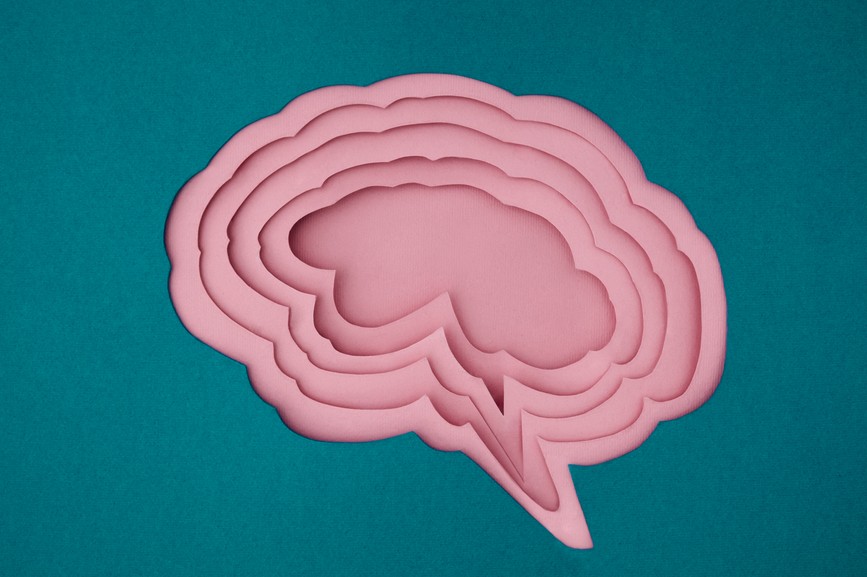Have a bod. Be a mom. Boom. You have a mom bod. Like it or…
Body
Mom Brain, AKA Matrescence, Is Actually Adult Adolescence. Yes, Really.
July 12, 2021 • By Alissa Alter

When I first started diving into pelvic health, I was furious that there was so much I was never taught about my body. MY body. No health class, no doctor, no parent, no older sibling shared information about how my body works which led to years of thinking something was wrong with me. No understanding of why my pelvis felt so heavy and I always pooped so much right before I got my period.
There are answers to these questions. Real, concrete answers that explain why you become “hormotional” each month. And why you feel like a dumpster fire after you give birth.
HORMONES. And they are powerful.
I recently read the book The Female Brain by Louann Brizendine, M.D. And while it did feel a bit dense at times, my brain exploded over and over as she articulated and explained my experiences that I’d chalked up to me being dramatic.
In her book she explains how in adolescence, our brains are completely reorganizing, sprouting new synapses, and refining new neural pathways that change the way we think, act, and feel. “Her brain is unfolding ancient instructions on how to be a woman.”
Cue brain explosion.
Our brains change during adolescence to match our bodies changing as we become women. Our focus shifts from sleepovers with our friends, braiding each other’s hair, and making friendship bracelets to, “Does this top make me look sexy?” “Do you think Brian will like me if I wear my hair up?” “How will I ever get a boyfriend/girlfriend while I still have braces?”
Our brains are reorganizing as we struggle to process this new status, level of independence, and identity.
Sound familiar? The pituitary gland sends a signal to the hypothalamus which sets off a chain reaction to the ovaries to start the ovulation process.
So now, not only are our brains scrambled, our bodies are now changing over from childhood (a more androgenous hormonal state) to womanhood which includes a month long infradian rhythm with varying surges of estrogen and progesterone every single day.
No wonder we were bonkers!!!
Some other cool things that happen as a result of this physiological maturation is that our ability to navigate social situations gets supercharged. We grow highly attuned to the nuances of tone, inflection, and body language. And as women our M.O. when it comes to aggression is verbal, emotional, and analytical vs males who become physical.
This leads us to understand the value of our female friendships and alliances.
In her book, Brizendine terms this behavior “tend and befriend.” She goes on to describe that “[t]ending involves nurturant activities that promote safety and reduce distress for the self and offspring; befriending is the creation and maintenance of social networks that may aid in this process.” We are literally wired to stick together for safety and security.
Alissa, I came here to read about becoming a mom, not reliving the horrors of puberty.
But that’s the thing. You are reliving the horrors of puberty. When you become a mother, during the transition known as matrescence, your brain quite literally changes. Again. These changes are structural, they change how your brain functions, and are most likely permanent.
In the final months of pregnancy, a woman’s brain changes size. It shrinks. According to Brezendine, this may be some areas shrinking while others are growing, but overall there is brain shrinkage which doesn’t resolve until the final weeks of pregnancy.
So then when the baby is ready to go, it sends a signal to your brian and your progesterone levels plummet. Oxytocin skyrockets and contractions begin.
Are you ready for this? After giving birth your baby’s scent is literally imprinted in your brain. You could smell your baby out of a lineup with over 90% accuracy. At this level, estrogen takes a nosedive too which leads us down the road to hot flashes, vaginal dryness, and mood swings.
Does this sound a lot like menopause to you? It’s because it’s a lot like menopause. But not everything about these changes sucks. The dopamine rush you get from being with your baby, or nursing them, stimulates the same reward centers of your brain as intimacy and orgasm.
This causes your blood pressure to drop, your breath to deepen, and you can finally relax and enjoy your newborn.
Because these pleasure and reward centers in your brain are getting a lot of action, this can cause tension, confusion, or miscommunication with your partner. You can read more about approaching intimacy postpartum here.
The last thing I want to mention is mommy brain.
Listen, I am the first one to blame my baby for every miscommunication, forgotten vegetable roasting in the oven (oy), and why I can’t remember the reason I walked into the room.
But mommy brain is real. The part of your brain responsible for focus and concentration (both of which are necessary to remember things) are completely preoccupied with your newborn.
Tracking their sleep, their eating, their safety, are they warm or cold? All of that has taken precedence over everything else. It’s even more important than remembering to eat lunch. Or shower. Or “sleep when the baby sleeps.”
This, and everything else listed above, is why I’m so ticked off that no one teaches us about this transition. This is adult puberty. Our brains, our bodies, our entire identities shift and no one says anything! We go through health class completely mortified learning some of what happens during menstruation and conception. At least they gave up a heads up. A clue that something really big was coming.
But matrescence? Nothing. And we have to change that. It’s time to not only know what is happening inside of us, but honor it. Celebrate it.
Looking for guidance on planning your party, celebration, ceremony to bring reverence back to this sacred transition into motherhood? This article is exactly what you’re looking for.
And if you’re looking for a mind blowing read (not a quick summer read) and a deeper understanding of the actual, real life, neurological changes happening in your body, I highly recommend Brezendine’s The Female Brain.
I also recommend spreading the word. Talk about this. Give this transition and our experiences a voice.
Share this article and this one and brainstorm with your friends on how you can celebrate your Matrescence.



